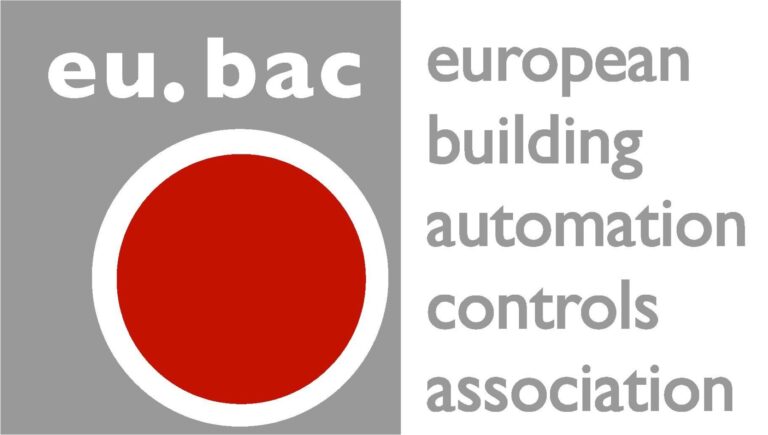eu.bac Breakfast Debate “Cost-efficient and achievable energy savings. The role of Building Automation and Controls”

On 4 April 2017, eu.bac organised a Breakfast debate on “Cost-efficient and achievable energy savings. The role of Building Automation and Controls”.
The successful event, co-hosted by MEP Bendt Bendtsen, Rapporteur of the Energy Performance of Buildings Directive (EPBD), and MEP Miapetra Kumpula-Natri, S&D, Shadow Rapporteur of the same file, took place in an MEP Salon in the European Parliament in Strasbourg and was attended by participants representing European institutions, relevant sector associations, consultancies and academics.
The discussion, led by moderator Dr. Peter Hug, Managing Director eu.bac, started with an introduction by Mr. Bendt Bendtsen, who emphasized the importance of having an ambitious EPBD review: making buildings more energy efficient and, at the same time, creating more jobs and growth. He highlighted the key importance of BACs to deliver energy efficiency and give users the opportunity to take control of their energy consumption and to achieve a better quality indoor environment through demand-side response.
Ms. Kumpula-Natri pointed out that the EPBD review is an incredible opportunity to implement the Paris agreement, to respond to climate change and increase energy efficiency.
The review should be concrete, addressing problems that are present in everybody’s everyday life. For instance, she stressed the importance of tackling the issue of poor indoor environment quality, which is afflicting too many houses and contributing to making people sick.
She also urged the need to have a holistic approach: houses should be considered as part of a bigger picture, of “smart cities”.
Mr. Nils Meinert, Managing Director Johnson Controls Germany, began by stating that BACS are definitely not a new technology and shouldn’t be seen as such in political discussions. What is indeed new is the integration and the connection of different devices and, particularly, functions. He underlined that BACs are low cost investments (average 30 Euro per square meter) with fast payback times (average 2/3 years), delivering high energy savings and cutting CO2 emissions. Mr, Meinert concluded his presentation, showing the participants a case example, illustrating impressive figures on the impact that BACS can have in buildings. Based on this example. Mr. Meinert called for an ambitious EPBD review, finally able to unlock the potential of BACS by setting minimum requirements for larger non-residential buildings.
Ms. Alix Chambris, Director EU Public Affairs at Danfoss, focusing on a residential perspective, explained in detail why the improvement of controls represents the forgotten dimension of energy policies. She brought some examples, extracted from a new Ecofys Study, on the benefits that could be achieved thanks to an optimization of technical building systems: 15% of the EU 2030 energy efficiency target would be met, citizens could save up to 67 Billion Euro on their energy bills, 156 Mt CO2 greenhouse gas would be saved (equivalent to 82 million cars) and 300.000 new jobs would be created in Europe. Ms. Chambris also explained how several barriers (in particular split incentives and lack of awareness) are currently hampering the realization of this untapped potential. She concluded with some key suggestions for the EPBD review: the only way to achieve this potential would be to include in the EPBD requirements for all residential buildings: a) to be equipped with individual room temperature control functionality; b) to be equipped with control functionalities enabling optimal system performance under partial loads in a way that can be maintained over time, instead of making them an alternative to physical inspections.
Mr. Jean-Jacques Marchais, Global Industry & Government Affairs Manager at Schneider Electric, walked the attendants through a presentation on the role of BACs on the road to digitalization. He envisioned a 2030 scenario where buildings will have to be more comfortable, efficient, flexible and connected, with an optimal integration of renewables. “Building automation is the key driver of this transition, so why not being more ambitious in this review?” asked Mr. Marchais. He also reminded the audience that BACs were already at the center of attention during the 2010 EPBD review, underlining that at that time the European institutions chose a gradual approach, postponing the ambition to the 2018 review. Therefore, Europe cannot afford to wait ten more years without addressing the regulatory and market failures.
In the debate that took place in the final part of the Breakfast event, Mr. Bendtsen and Ms. Kumpula Natri remarked on the importance of working together to achieve the common goal. Mr. Bendtsen in particular reiterated his intention to be ambitious in the review, especially regarding security for long-term investments, boosting jobs and growth, giving priority to cost-efficient solutions and avoiding new burdens to entrepreneurs and citizens.
The event was concluded by Dr. Hug who thanked all the participants for the interesting debate, promising that eu.bac will respond to legislator’s call for involvement to help them achieve an ambitious reform of the EPBD.
